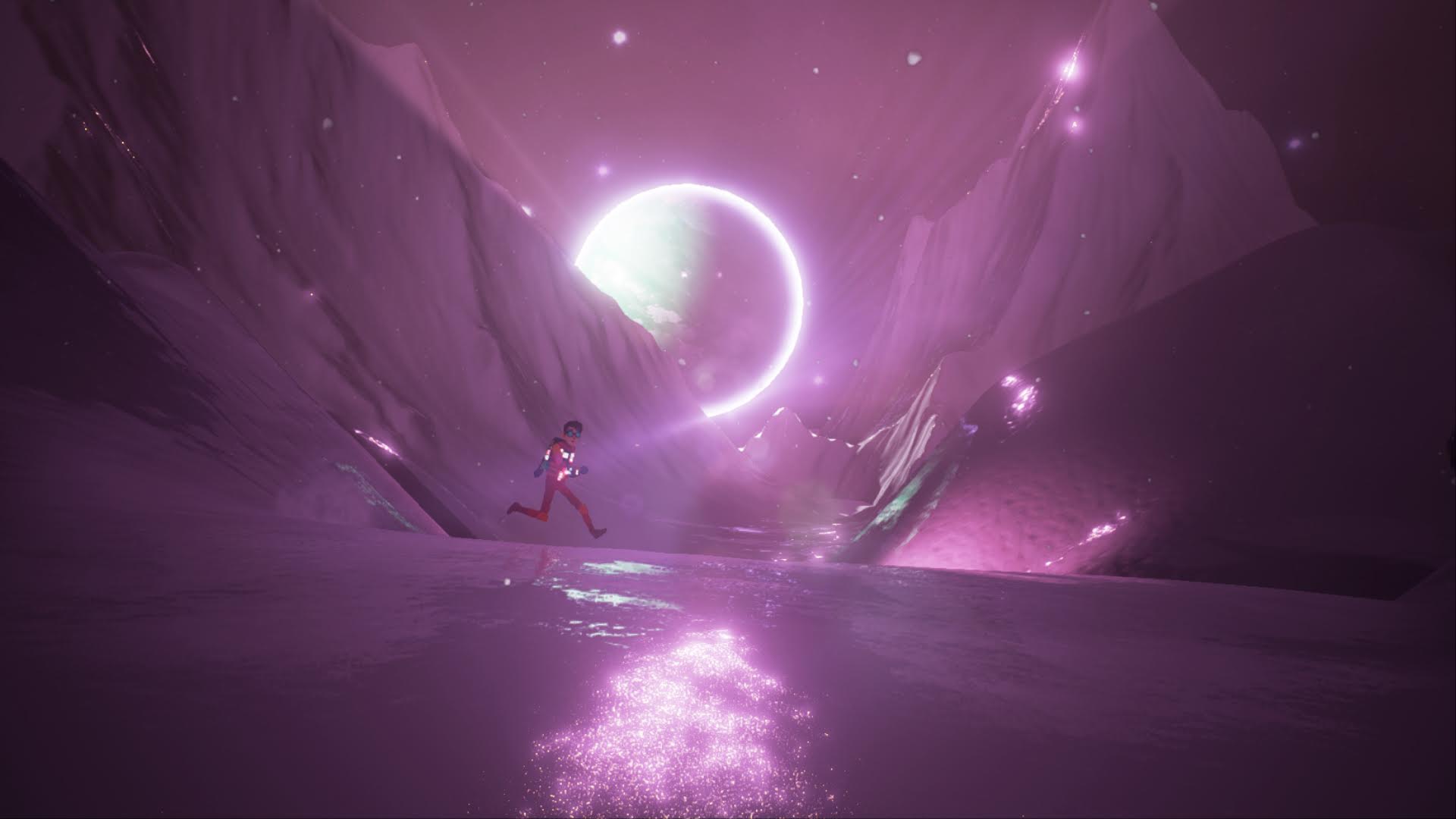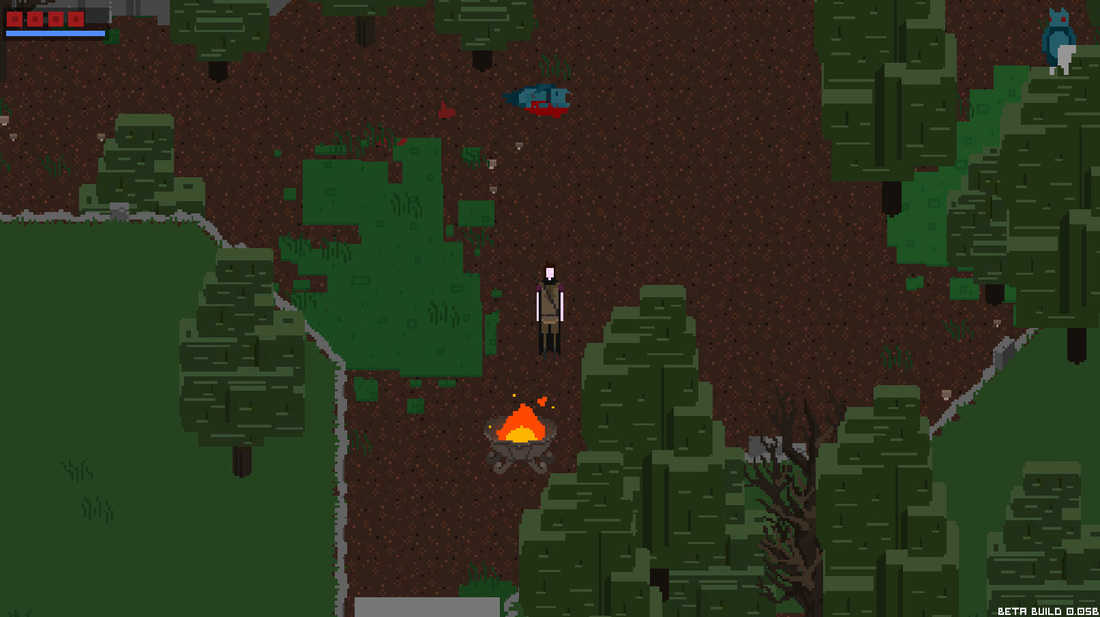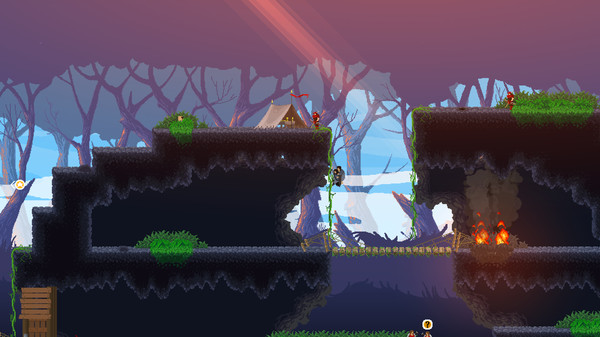A handful of exciting Aussie indie games from PAX Australia
Guns for hands, fiery stealth and soothing forestry sims.

PAX Australia’s sprawling indie area is the best part of the show. It’s great because you need not line up to play anything, and the mood is refreshingly positive. If you’re over-exposed to the way videogames are discussed online, it’s surprising to find that the developer / enjoyer-of-games relationship isn’t as damaged as it seems. In fact, attending PAX and watching people play new games and talk to the developers of said games is probably the most valuable part of the experience. People are very nice at conventions.
I spent most of Saturday afternoon wandering the booths, navigating my way between hordes of Pikachu and Gears of War cosplayers (one guy was dressed as Doritos and Mountain Dew). Below is a list of the Australian-developed games I enjoyed most. I haven’t included some of the games I wrote about last year, like Objects in Space or DeSync, because I wanted to focus on stuff I haven’t written about yet. They were on the show floor though, and so were plenty of other games I didn’t get the chance to play. The Australian dev scene is very busy.
Elden

This is a gruesome top-down pixel RPG which deliberately evokes the mystery of the Dark Souls series. It’s difficult to convey that loneliness on a show floor, but even without a headset I could tell Elden has potential. The skewed art style recalls something you might have booted from a mysterious floppy disc on your Commodore 64 in the late 1980s, and while One Rat Games’ methods of evoking unease is indebted to Souls (vague dialogue, gruesome environmental storytelling), I feel like this is darker and more unsettling than the likes of Salt & Sanctuary, or Titan Souls.
As I was playing this a mother explained to her devastated child that PAX is mostly about new games, hence the lack of playable Minecraft booths. The child was not impressed and stormed off before he had the chance to play Elden. I’m glad he didn’t play it, it would have further ruined his mood.
Wildfire

Wildfire looks like a cute platformer but is actually a highly violent stealth game about setting things on fire and using that ability to your tactical advantage. I only played it in co-op with a person who lost interest very quickly – a good thing because he kept throwing fire at me and making the guards angry. No one explained to him that it’s a stealth game, but that’s what it is, and I gained the impression after my brief ten minutes session that studio Sneaky Bastards is focused on player agency, improvisation and amusing Spelunky-esque emergent stories. It releases next year.
Evergreen
I grow impatient with videogames that make me wait to do things, so Evergreen didn’t seem appealing at first. According to studio Siege Sloth Games, it’s designed to be “zen-like” and “relaxing” – in other words, no killing, no double jumping, no crashing cars. I think these descriptions sell Evergreen a bit short, though: it’s not designed to be challenging, but it’s more objective-based than it first seems.
It’s your job to grow a beautiful big tree, and to ensure the tree will help the areas around it thrive. This is achieved by extending its branches, which you can do in any creative manner you please, though physics will sometimes get in the way (you can’t make your tree spell the word “arse”, in other words). At one point, I needed to grow the tree roots in order to block off a nearby gas leak. It’s hard to enjoy an ostensibly “relaxing” game at a convention (Ubisoft’s Just Dance booth was nearby, and a man dressed as Master Chief was waiting for his turn), but it’s an undeniably pretty game. I was expecting a Mountain-clone, but got a quiet, meditative strategy game instead.
Keep up to date with the most important stories and the best deals, as picked by the PC Gamer team.
The American Dream
This is a VR game about doing everything with guns, developed by the studio responsible for Screencheat. Basically, your hands are guns, and you must solve a series of banal scenarios using them.
I had my reservations about The American Dream before I played it: a young Australian studio expounding on American gun culture did not seem appealing or wise, but this game is actually very funny, and during the first two missions at least, seemed to target the inherent weirdness of first-person shooters more-so than American gun laws. Like James Davenport once disturbingly pondered, what would happen if you had guns instead of hands? The American Dream answers this pretty simply: you would need to shoot everything.
The Artful Escape of Francis Vendetti
In my opinion, this was easily the most impressive game on the floor. According to Melbourne studio The Artful Escape, it’s “a narrative driven, laser-light-guitar-solo, cinematic-platforming action/adventure” game. That’s pretty consistent with what I saw of Francis Vendetti, but its art style is very beautiful, elevating it above plenty of other games at the convention where you run from left to right and occasionally jump.
The Artful Escape of Francis Vendetti is about a teen musician trying to find his artistic purpose and identity, and that search, typically enough, occurs in a parallel psychedelic world full of laser-lights, spectral sci-fi cityscapes and slippery ice slopes. There’s a real warmth to this game, and the dialogue trees were very amusing, as were the sequences where Francis must perform guitar solos for the benefit of strange creatures (or for the benefit of himself, as tends to be the case with guitar solos). I’ll have an interview with its creator Johnny Galvatron in the coming days, but it’s definitely a game to keep an eye on.
Rogue Singularity
I played a bit of Rogue Singularity at last year’s PAX Australia, and it looked decent enough, albeit a bit rope-y (as you’d expect from a game in early development). Nowadays, this procedurally generated 3D platformer looks a lot better, and while it’s still in Early Access, feels more feature complete than it did. It’s not a particularly innovative game: you’re a robot who must reach the end of each level, collecting coins along the way, and dying a lot. But if you’re like me and can’t get enough of reflex-oriented, quick death/respawn action platformers, it’s a lot of fun, and it’s also very pretty.
Element
Aside from Francis Vendetti, Element was easily the most visually striking game in the indie area. Dubbed a "realtime strategy space game for people who don't have time to play realtime strategy space games" its clean art style dovetails nicely with a pared back approach to military strategy. Though ostensibly less complex than your average RTS, it's hard to get a proper feel for a game like this at a convention, but it's in Early Access at the moment if the aesthetic appeals to you.

Shaun Prescott is the Australian editor of PC Gamer. With over ten years experience covering the games industry, his work has appeared on GamesRadar+, TechRadar, The Guardian, PLAY Magazine, the Sydney Morning Herald, and more. Specific interests include indie games, obscure Metroidvanias, speedrunning, experimental games and FPSs. He thinks Lulu by Metallica and Lou Reed is an all-time classic that will receive its due critical reappraisal one day.

